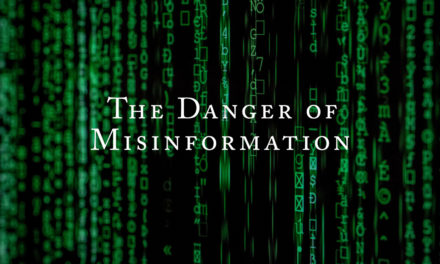Awhile back I read a biography of a man who preached against real sins. By that, I mean the sins that are called sins in the Bible. He preached against immorality and homosexuality in the early 1980’s. The Spirit of God attended his preaching, bringing conviction to the hearers. Revival and awakening often followed. It seems that since this man’s era of ministry and the reshaping of original Fundamentalism into the present day version of Fundamentalism (see Fundamentalism: Original and Reshaped), there has been more passion about preaching against what some call sins, even though they are not clearly mentioned in the Bible.
In the past couple of years, several preachers have said to me that the real issues of the day for churches are, and then they name two or three issues. Interestingly, as I pondered these claims, it occurred to me that though the issues named are certainly not unimportant, none of them are included in biblical lists of sins. The issues named are several steps removed from biblical precept or principle. That far removed from the explicit words of God, I had to wonder if Christian subcultures have in some cases raised traditions (which often are good traditions) to the level of God’s commandments or perhaps in other cases unwittingly created fake sins.
The Bible provides various sin lists. If you believe in biblical authority, you cannot argue or fudge on these lists. They can and should be preached on, and there is plenty to preach. God blesses Spirit-anointed preaching that is true to the Word. We need this kind of bold preaching in the power of the Spirit. Tragically, some who have reacted to the overreach of others have hedged on what the Bible clearly warns as sin. The enemy wins in both directions when this is the case.
The most obvious biblical sin list is the Ten Commandments, which prohibits idolatry, making idols, taking God’s name in vain, dishonoring parents, murder, adultery, stealing, lying, and coveting (see Exodus 20). There is debate about the Sabbath in the New Testament era.
The Pauline epistles include several lists. For example, Paul states, under inspiration, “Now the works of the flesh are manifest, which are these; Adultery, fornication, uncleanness, lasciviousness [lewdness], Idolatry, witchcraft, hatred, variance [contentions], emulations [jealousies], wrath, strife, seditions [dissensions], heresies [schisms], Envyings, murders, drunkenness, revellings, and such like” (Galatians 5:19-21; cf. 1 Corinthians 6:9-10 and Ephesians 5:3-5). Plenty to preach on here.
The phrase “and such like” indicates that more could have been named. With the Bible, the Holy Spirit, and a brain, we should be enabled to come to right conclusions about other similar sins. Sins that are on the level of the biblical sin lists. This is valid and even necessary. But this does not validate going beyond the germane issues into the realm of applications several steps removed from biblical statement and making that level of extent the issue. When overreach in applications is emphasized as biblical, then sectarianism follows. Interestingly, sectarianism is named in the explicit sin list in Galatians: “seditions [dissensions], heresies [schisms or unbiblical divisions].”
Isn’t it interesting that in these explicit sin lists, you don’t find the things that many call the issues of the day? Not that what is mentioned by some today doesn’t have any bearing. It certainly does. But it seems that if what some emphasize today is truly as egregious as is maintained, that the Holy Spirit somehow missed the mark and left it out. Of course, this is not the case. We need to yield to what the Holy Spirit emphasizes.
It is time to preach on real sins, trusting in the Holy Spirit to convict, and it is time to preach on real life—the holy life of Jesus accessible through the walk of faith. When the Spirit attends this combination, revival ignites.

John Van Gelderen
Post Author












I appreciate this post. As a senior pastor of only 9 years my focus has been on the “real sins” you mentioned. It is amazing how God works when his Word is preached. I try to live by the motto “The main thing is to keep the main thing the main thing”. The focus must be on what Scripture explicitly says. There will be other applications, of course, that will be preached, but I realize the applications are not inspired. I allow the Holy Spirit to convict and work in the individual believer. When there are disagreements about the applications,… Read more »
Thanks for this testimony! Well said!
I am thinking about one of the most frequently mentioned sins in the Old Testament, the sin of Jeroboam the son of Nebat. His sin “caused Israel to sin” as well. As you study through I and II Kings, it becomes clear that his sin was that of setting up calves to use to worship the Lord. It was not until many years later that the Israelites worshiped the calves themselves. For many generations, they claimed they were simply using the calves to worship the Lord. Jeroboam instituted carnal, convenient, compromised, conformed-to-this-world worship. Although there were times of Old Testament… Read more »
Thanks for your thoughts. The sin of Jeroboam broke the first and second commandments. While worship styles are certainly not irrelevant or unimportant, they are several steps removed from what is clearly stated. Some may be fleshly, which grieves the Spirit. Some may not, but may be different than what someone else may be used to. Some may be traditionally fine, but lacking the Spirit, which is also fleshly.
Hi Dr John, In relation to this topic, I am curious what your thoughts are about the Westminster Confessions Larger Catechism and it’s questions and answer regarding the 10 commandments. I have found its delineation of “sins forbidden” and “duties required” by every commandment to be thought provoking and helpful. I believe Jesus taught us how the 10 commandments are truly to be applied and that is what’s often called “the Spirit” of the law and not just “the letter”. The Pharisees were good at keeping the letter but not the spirit of the law. They were missing the heart… Read more »
Thanks for your input. I am not familiar with the details of the catechism. But as my article states, there is a biblical place for applying “and such like” which keeps the applications on the level of what is explicitly stated. The danger comes when applications several steps removed from the text are treated on the same level as the text.